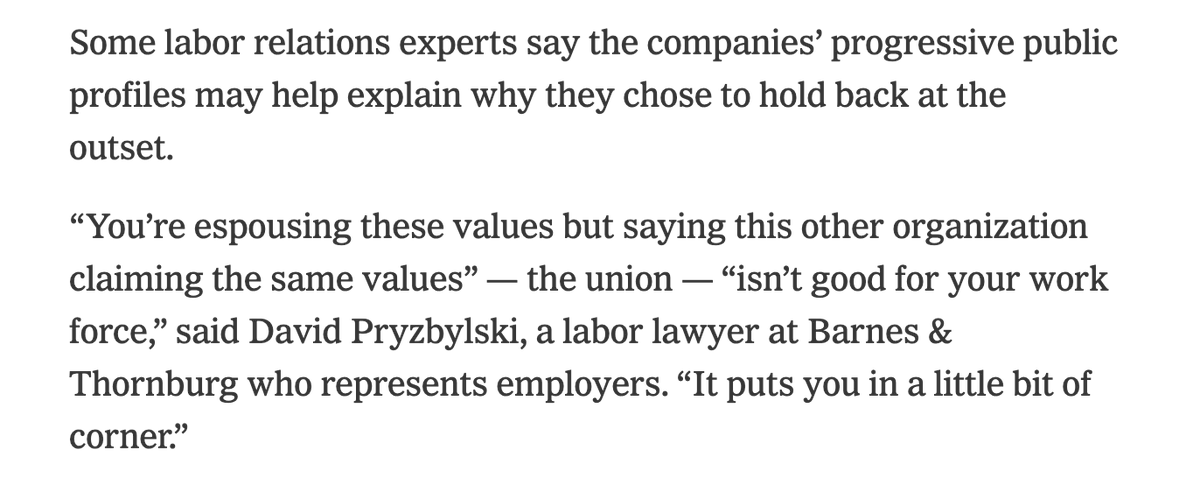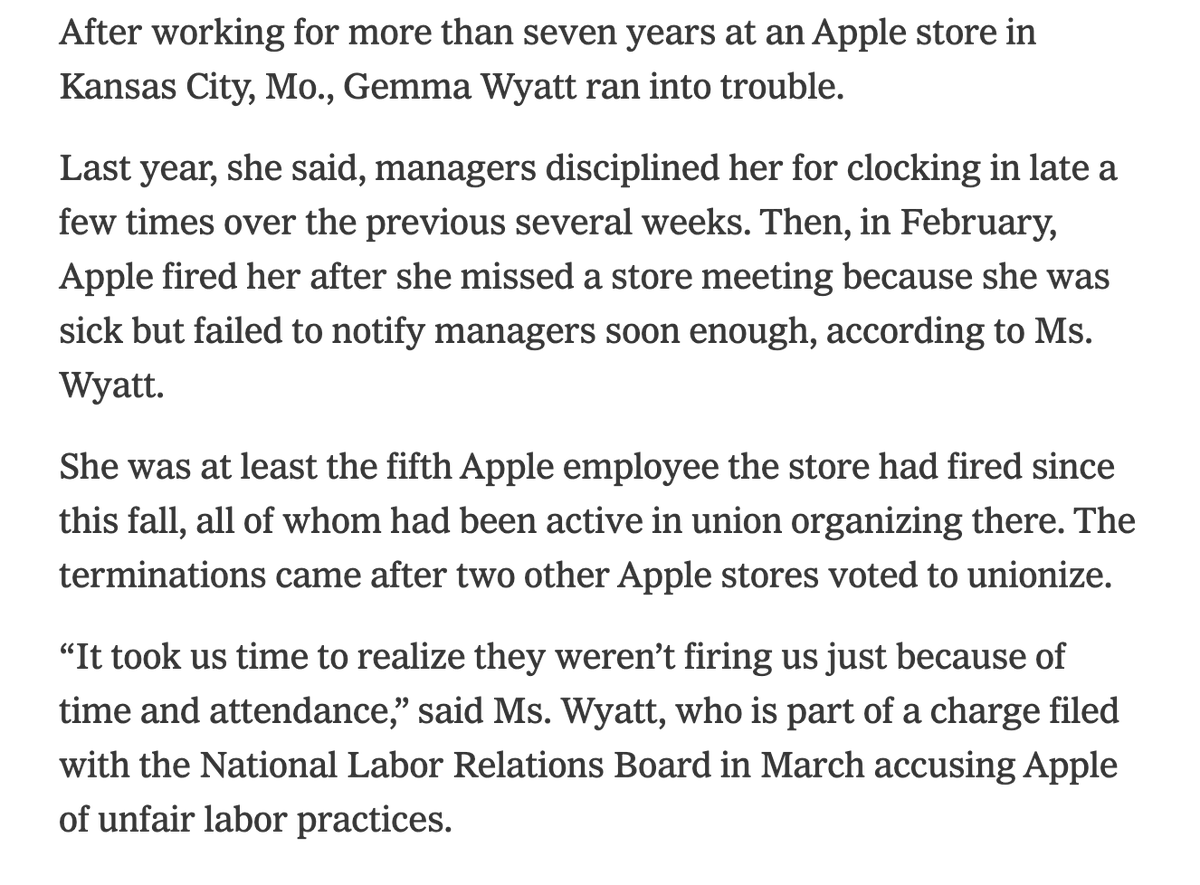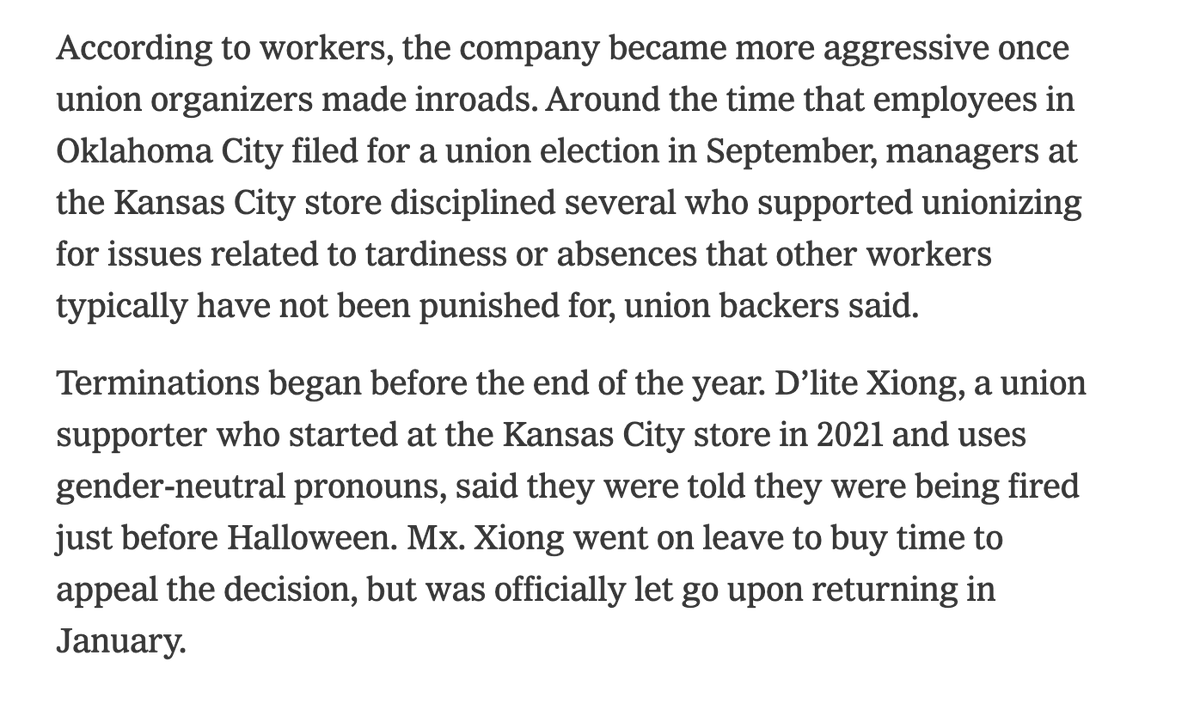Several companies that cultivate progressive images--Apple, Starbucks, Trader Joe's, REI--appear to have really escalated their pushback against union campaigns, with formal discipline and firings. I have a new piece up explaining how and why nytimes.com/2023/05/22/bus…
Labor relations experts say these companies typically try not to go all-out at first so as not to create too much dissonance with their progressive brands. But once the union wins an election or two... 2/ 



The companies all told me they are not retaliating against union supporters, simply enforcing rules that apply to all employees. 3/
But in each case they didn't appear to start singling out union supporters for termination until after the union won an election or two. 4/
• • •
Missing some Tweet in this thread? You can try to
force a refresh

 Read on Twitter
Read on Twitter






